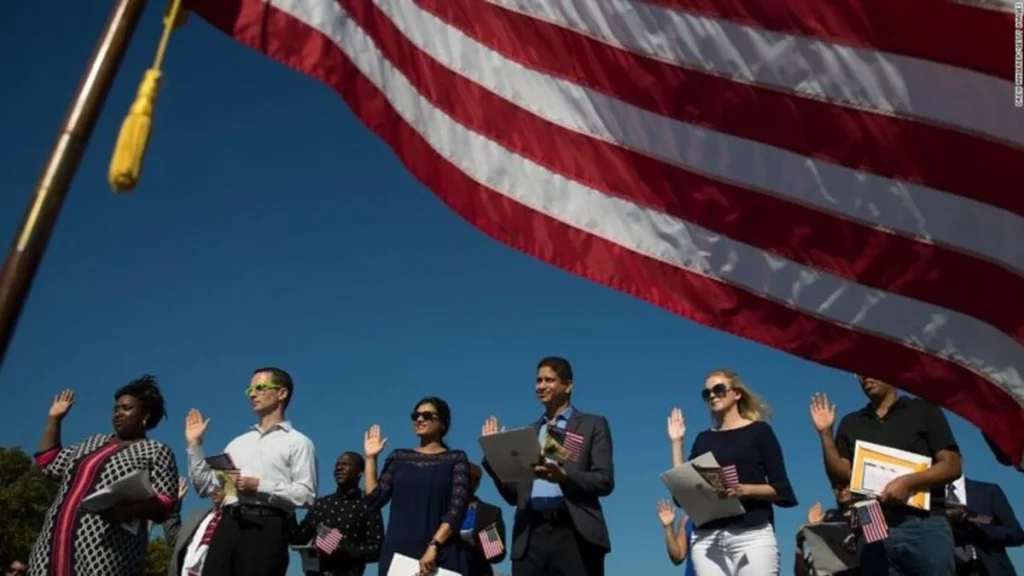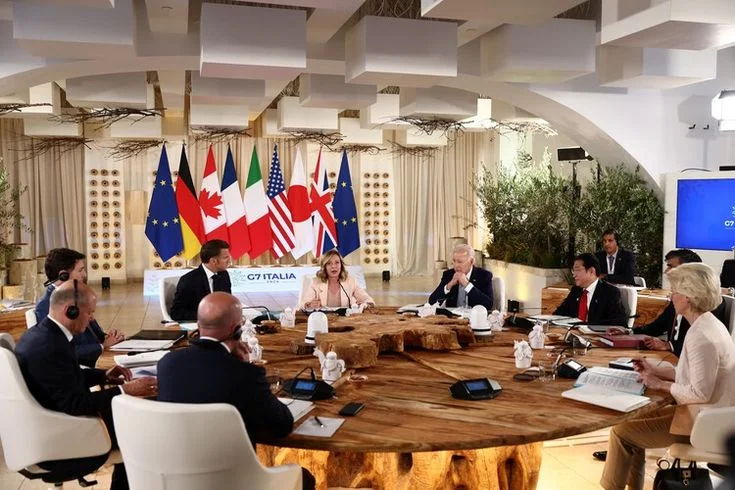Global political news is more than just headlines; it’s a window into a rapidly changing world. From shifting alliances and rising superpowers to climate deals and technology-driven diplomacy, 2025 is proving to be a pivotal year for international politics.
The global balance of power is evolving, and countries are rewriting their roles on the world stage. Whether it’s the ongoing US-China rivalry, renewed energy conflicts in the Middle East, or groundbreaking environmental treaties, today’s political landscape is shaping the future of humanity.
In this in-depth analysis, we’ll uncover the key events, emerging trends, and behind-the-scenes movements that are driving global politics forward in 2025. This article is your complete guide to understanding how power, policy, and people are interacting on the international level right now.
The Rise of Multipolarity in Global Politics

Source: Pinterest
The world no longer operates under the dominance of a single superpower. In 2025, multiple powers are asserting influence, transforming global politics. Multipolarity is forcing countries to rethink old strategies and form new alliances.
China is expanding its influence across Asia and Africa through initiatives like the Belt and Road. Russia is reinforcing its military and energy strategies, especially after the Ukraine conflict. India’s growing economic and technological power is prompting it to assume a more significant role in global decision-making. Meanwhile, the European Union is strengthening internal cohesion to maintain relevance in international forums.
Key trends in this era include:
- Nations are pursuing sovereignty and influence through new trade and security partnerships.
- Diplomacy is becoming more flexible and competitive.
- International institutions are updating frameworks to remain effective.
Climate Politics and Global Agreements in 2025

Source: Freepik
Climate change remains the most critical topic in global political discussions. By 2025, countries are actively working to reduce carbon emissions. In late 2024, the Global Green Pact was signed by over 150 countries, committing them to achieving carbon neutrality by 2050.
Developing nations are requesting international funding to support renewable energy projects. Technology transfer and innovation are crucial in meeting these climate goals.
Key points include: Global political news.
- Implementation of carbon pricing and environmental taxes worldwide.
- Climate refugees and ecological justice are becoming central political issues.
- Heightened competition over renewable energy resources.
External Reference: According to the United Nations Framework Convention on Climate Change (UNFCCC), coordinated global efforts are essential for effective climate action.
US-China Relations: A Complex Tug of War

Source: Pinterest
The relationship between the United States and China in 2025 remains one of the most critical and complex elements in global political news. Both nations are intertwined economically, but fiercely competitive strategically. Trade tensions persist due to tariffs and supply chain realignments as both countries strive to reduce their mutual dependence.
Technological competition is intense, particularly in areas such as semiconductors, AI, and 5G infrastructure, where restrictions and sanctions frequently disrupt business operations. Militarily, the South China Sea and Taiwan Strait remain hotspots for potential conflict, with both sides increasing their military presence and conducting regular exercises.
Cybersecurity is another battleground, as both countries accuse each other of cyber espionage and information warfare. Despite these challenges, the US and China occasionally cooperate on global issues such as climate change and public health crises, recognizing the importance of collaboration in an interconnected world. This dual nature of rivalry and cooperation makes their relationship a defining feature of global political dynamics in 2025.
Middle East: Shifting Alliances and Conflicts
The Middle East in 2025 remains a region of significant geopolitical importance and complexity. Shifting alliances are reshaping the global political landscape as countries seek new partnerships to bolster their security and economic interests. The longstanding rivalry between Iran and Saudi Arabia remains a core source of regional tension, influencing conflicts and diplomatic efforts across the region.
Meanwhile, the Abraham Accords have led to improved relations between Israel and several Arab states, fostering economic cooperation and strategic partnerships. However, unresolved conflicts in Syria, Yemen, and Libya keep the region unstable, fueling humanitarian crises and refugee flows. External powers, such as the United States, Russia, and China, maintain active roles in the area, often backing different factions and competing for influence.
Energy politics remain central, with fluctuations in oil prices affecting global markets and national economies. Additionally, water scarcity and climate change challenges add new layers of urgency to political negotiations. As a result, the Middle East in 2025 is a dynamic and often unpredictable theatre of shifting alliances and ongoing conflicts.
Emerging Technologies and Political Power
In 2025, technology is a key driver of political power. Artificial intelligence (AI), quantum computing, space exploration, and cybersecurity have reshaped geopolitics.
Global institutions, such as the United Nations (UN), are developing frameworks to regulate artificial intelligence (AI). Cyber warfare presents new challenges to national security. Space militarization has triggered discussions on international agreements.
Essential developments: Global political news
- Information warfare influences public opinion and elections.
- Technological espionage is on the rise.
- Nations invest heavily in securing digital infrastructure.
Global Political News: Future of Economic Policies
Global economic policies in 2025 play a crucial role in shaping the international political landscape. Nations are focusing on stabilizing economies post-pandemic by managing inflation, securing supply chains, and encouraging sustainable growth.
Many countries have adopted protectionist measures to safeguard domestic industries, which sometimes lead to trade disputes and tensions between economic powers.
Sanctions remain a standard political tool to influence or punish governments, affecting diplomatic relations and regional stability. Additionally, the rise of digital currencies, particularly Central Bank Digital Currencies (CBDCs), is transforming international trade and finance, challenging traditional banking systems and monetary policies.
Debt crises in developing countries also have significant political repercussions, often leading to social unrest and calls for international debt relief. Overall, economic strategies are deeply intertwined with political objectives, influencing alliances, conflicts, and global governance in 2025.
The Role of International Organizations in 2025
In 2025, international organizations will continue to play a crucial role in addressing global challenges that no single country can solve alone. Institutions such as the United Nations (UN), World Health Organization (WHO), World Trade Organization (WTO), and NATO are adapting to changing global realities.
They are reforming their structures and policies to become more efficient, inclusive, and responsive to crises like climate change, pandemics, armed conflicts, and economic disruptions. These organizations coordinate peacekeeping efforts, facilitate global health initiatives, regulate international trade, and promote human rights and democratic values.
Their role is crucial in maintaining global stability and cooperation amid rising geopolitical tensions. Staying informed about global political news helps us understand these dynamics and the efforts being made to promote international peace and security.
Key Functions of International Organizations in 2025
- Coordinating peacekeeping operations to manage conflicts and prevent escalation.
- Leading the global response to health emergencies, including pandemic preparedness and vaccine distribution.
- Facilitating trade negotiations and resolving international disputes to ensure smoother economic cooperation.
- Supporting countries in meeting climate commitments and advancing sustainable development goals.
- Advocating for human rights, democracy, and the rule of law through monitoring and diplomatic efforts.
Global Political News: Future of Democracy vs. Authoritarianism
The year 2025 marks a complex battle between democratic values and authoritarianism worldwide. Many established democracies face challenges, including political polarization, misinformation, and declining public trust in institutions. Meanwhile, authoritarian regimes are increasingly leveraging digital surveillance, censorship, and military strength to consolidate power.
Despite these pressures, grassroots movements and youth-led protests demanding transparency, human rights, and justice are gaining momentum in several countries. The struggle between these governance models affects international relations, as democratic nations push for multilateral cooperation and authoritarian states often pursue more unilateral or regional strategies.
The future of global governance will largely depend on how these forces evolve and influence public opinion, election integrity, and media freedom. Keeping up with global political news is crucial for understanding these dynamics, as shifts in power, emerging conflicts, and policy changes significantly shape the international order.
Key Trends in Democracy and Authoritarianism 2025
- Democratic countries face increasing polarization and political fragmentation.
- Authoritarian regimes expand the use of digital tools for control and surveillance.
- Civil society and youth movements demand greater transparency and respect for their rights.
- Media freedom and election security continue to be under international scrutiny.
- Democracies and authoritarian states adopt differing foreign policy approaches.
Geopolitical Hotspots and Flashpoints: Global political news
In 2025, Taiwan, Ukraine, the Korean Peninsula, and the Arctic are the most critical geopolitical hotspots. Taiwan remains a significant point of tension between the United States and China, with increased military activities raising concerns about potential conflict.
The Russia-Ukraine war continues to threaten European security, causing humanitarian crises and disrupting global energy markets. On the Korean Peninsula, North Korea’s ongoing nuclear tests keep the region on edge as diplomatic talks remain stalled.
Meanwhile, the Arctic is becoming a new arena for rivalry due to melting ice opening access to natural resources and new shipping routes. Competition among Arctic and non-Arctic nations over territory and resources is intensifying. These flashpoints highlight the far-reaching implications of local conflicts and environmental changes for global peace and stability in 2025.
Conclusion: Global Political News
As we navigate through the evolving landscape of global political news, one thing is clear: the world is entering a new era of complexity and cooperation. No longer defined by a single superpower, international politics is now shaped by diverse voices, regional powers, and pressing global challenges, including climate change and cybersecurity.
From multipolar diplomacy and shifting economic alliances to digital warfare and the climate crisis, every decision made by world leaders today has far-reaching consequences. Understanding these dynamics isn’t just for politicians or analysts; it’s essential for anyone who wants to stay informed and prepared for the future.
Looking ahead, the balance between conflict and cooperation will define how nations move forward. As global citizens, staying informed about political shifts empowers us to make more informed decisions, engage responsibly, and contribute meaningfully in an increasingly interconnected world.










